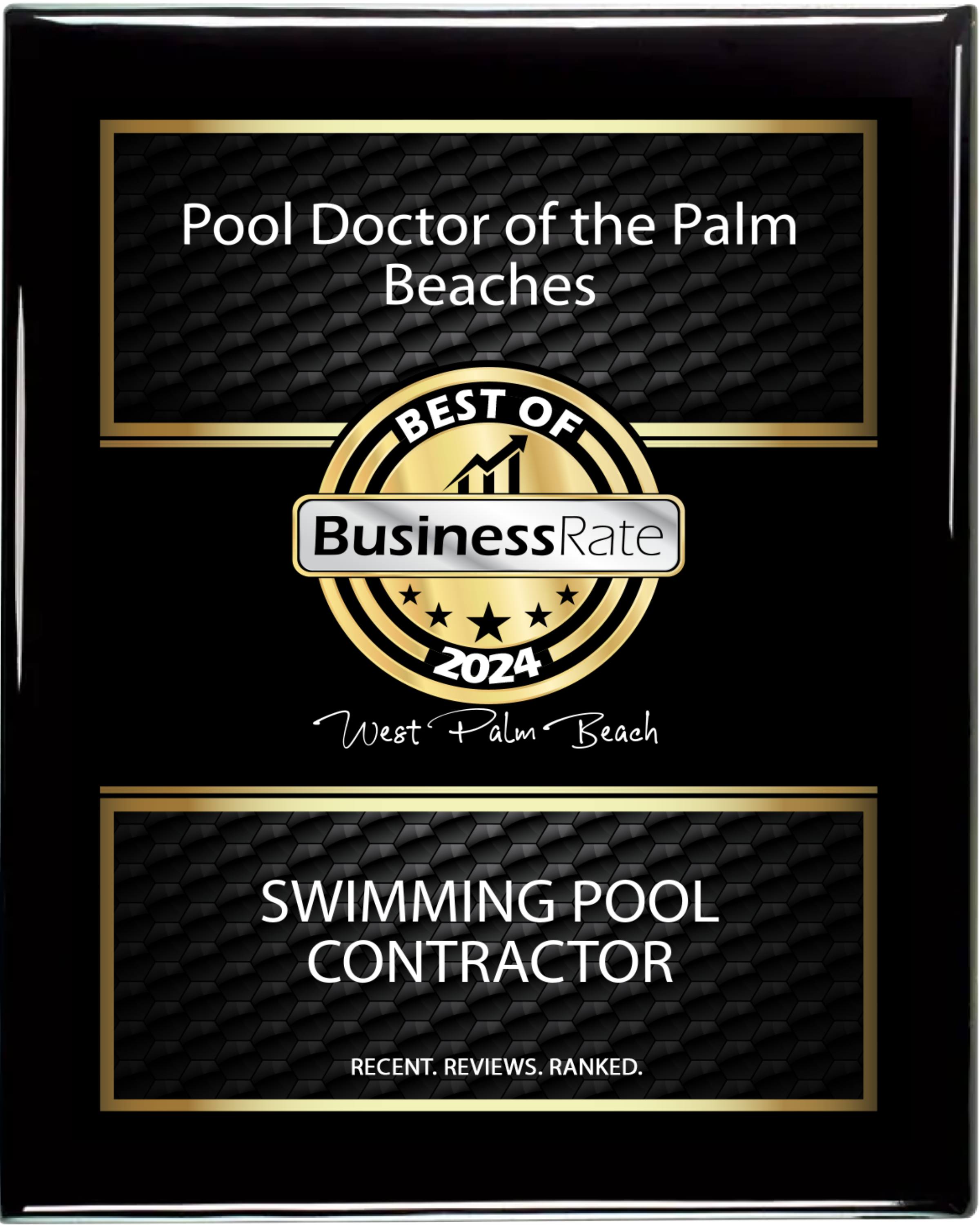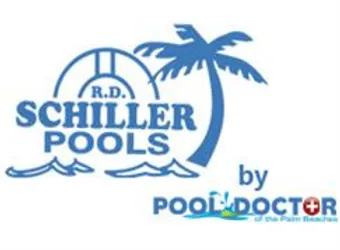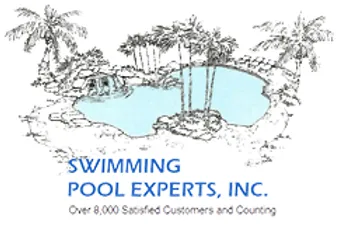To start a pool maintenance business in 2025, you'll need to obtain required certifications, secure liability insurance, and invest in essential equipment like testing kits and cleaning tools. Begin by establishing competitive service packages, implementing a client management system, and developing marketing strategies through social media and local partnerships. Focus on building a skilled team through thorough training programs and create seasonal service plans. The key details below will guide you through each vital step of launching your successful pool service company.
Required Certifications and Legal Requirements

Before launching your pool maintenance business, you'll need several key certifications and permits to operate legally and professionally. Check your state's licensing requirements for pool contractors, which typically include completing certified training programs and passing competency exams. Most states require a business license and contractor's license specifically for pool maintenance.
Protect your business with extensive insurance policies, including general liability insurance and workers' compensation if you plan to hire employees. You'll also need to obtain chemical handling certifications to safely work with pool treatment products. Consider getting certified by the National Swimming Pool Foundation (NSPF) or the Association of Pool & Spa Professionals (APSP) to enhance your credibility. Don't forget to register your business with local authorities and secure any municipality-specific permits for chemical storage and disposal.
Essential Equipment and Supplies
You'll need a thorough inventory of basic cleaning tools to effectively maintain your clients' pools, including telescopic poles, vacuum heads, leaf nets, and pool brushes. Your chemical testing kit must contain reliable equipment for measuring pH, chlorine, alkalinity, and cyanuric acid levels, along with accurate color-matching charts and digital readers. These essential tools and testing supplies form the foundation of your pool service business, enabling you to deliver consistent, professional results for every customer.
Basic Cleaning Tools Required
Professional pool maintenance requires six essential cleaning tools that form the foundation of your service equipment. You'll need a telescopic pole with diverse cleaning brushes for scrubbing walls and tiles, plus vacuum heads that attach to remove debris. A quality leaf rake or net skimmer helps collect floating debris, while a hand-held leaf skimmer tackles tight corners.
A pool test kit is vital for checking water chemistry, and you'll need to pack reliable thermometers to monitor water temperature. Don't forget the algae brush, which features stiff bristles designed specifically for removing stubborn algae growth. These tools must be commercial-grade to withstand daily use across multiple pools. Store them in a dedicated tool bag or container to protect your investment and maintain organization between service calls.
Chemical Testing Kit Essentials
Since accurate water chemistry is essential for pool safety, a thorough testing kit serves as your primary diagnostic tool. You'll need to invest in professional-grade equipment that measures key chemical parameters quickly and accurately.
| Test Parameter | Testing Frequency | Essential Chemicals |
|---|---|---|
| pH Level | 2-3 times/week | pH Up/Down |
| Chlorine | Daily | Chlorine/Bromine |
| Alkalinity | Weekly | Alkalinity Increaser |
| Calcium Hardness | Monthly | Calcium Chloride |
| Cyanuric Acid | Bi-weekly | Stabilizer |
Your testing kit should include digital meters, test strips, and reagent drops to guarantee accurate readings. Stock extra reagents and calibration solutions to maintain testing accuracy. For professional service, invest in a digital photometer that provides precise measurements and helps you make informed decisions about chemical adjustments.
Pricing Strategy and Service Packages
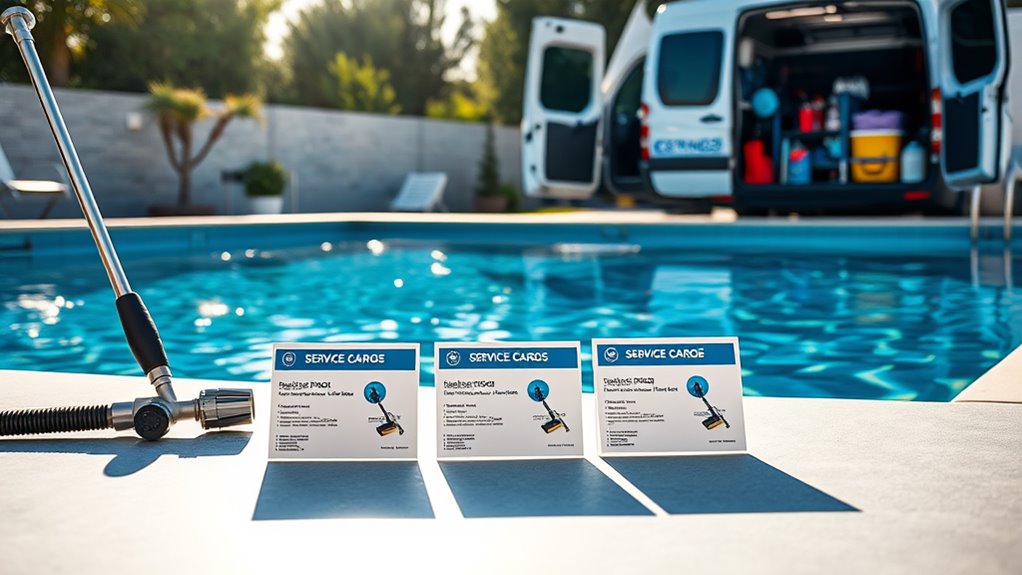
Your pool maintenance business needs a clear pricing structure that includes both basic service rates and premium packages to enhance revenue potential. You'll want to establish a base rate covering routine cleaning, chemical balancing, and equipment checks, while creating higher-priced tiers that incorporate supplementary services like equipment repairs, specialized treatments, and emergency response. Consider offering monthly service packages that bundle multiple visits with priority scheduling and seasonal maintenance to provide better value for clients while ensuring steady income for your business.
Base Rates Structure
Establishing competitive yet profitable base rates requires careful analysis of your local market, operational costs, and service delivery time. Begin with thorough market analysis of competitor pricing while factoring in your unique service offerings and expertise.
| Service Level | Weekly Visit | Monthly Rate |
|---|---|---|
| Basic | 1x | $120-160 |
| Standard | 2x | $180-240 |
| Premium | 3x | $260-320 |
| Commercial | Custom | Quote-based |
Structure your base rates to reflect service frequency, pool size, and equipment requirements. You'll need to account for travel distance, chemical costs, and seasonal demand fluctuations. Consider offering tiered pricing based on service commitment length, with discounts for quarterly or annual contracts. Always build in a profit margin that sustains your business growth while remaining competitive in your service area.
Premium Service Tiers
While basic pool maintenance meets essential needs, premium service tiers create supplementary revenue streams and improve customer satisfaction through thorough care packages. You'll want to structure your premium offerings into three distinct levels: Silver, Gold, and Platinum.
Your Silver tier can include weekly maintenance plus quarterly equipment checks. The Gold tier should add specialized chemical treatments, priority scheduling, and monthly deep cleaning. For Platinum members, incorporate luxury options like smart pool monitoring systems, 24/7 emergency support, and seasonal opening/closing services.
Consider implementing subscription models for each tier, offering discounted annual rates to encourage long-term commitments. You can differentiate your premium services by including value-added features like detailed water testing reports, personalized maintenance schedules, and proactive equipment replacement recommendations.
Marketing Your Pool Business
Marketing a pool maintenance business effectively can mean the difference between steady growth and stagnation in today's competitive service industry. To build your client base, establish a strong social media presence across platforms like Instagram and Facebook, showcasing your work through before-and-after photos and maintenance tips.
Launch referral programs that reward existing customers for recommending your services. Offer incentives like discounted maintenance visits or free water testing. Create partnerships with local pool supply stores, real estate agents, and property managers who can direct potential clients to your business.
Don't forget traditional marketing methods – branded vehicles, yard signs at service locations, and local community involvement can greatly enhance visibility. Develop a professional website optimized for local search terms to capture homeowners actively seeking pool services in your area.
Hiring and Training Service Technicians
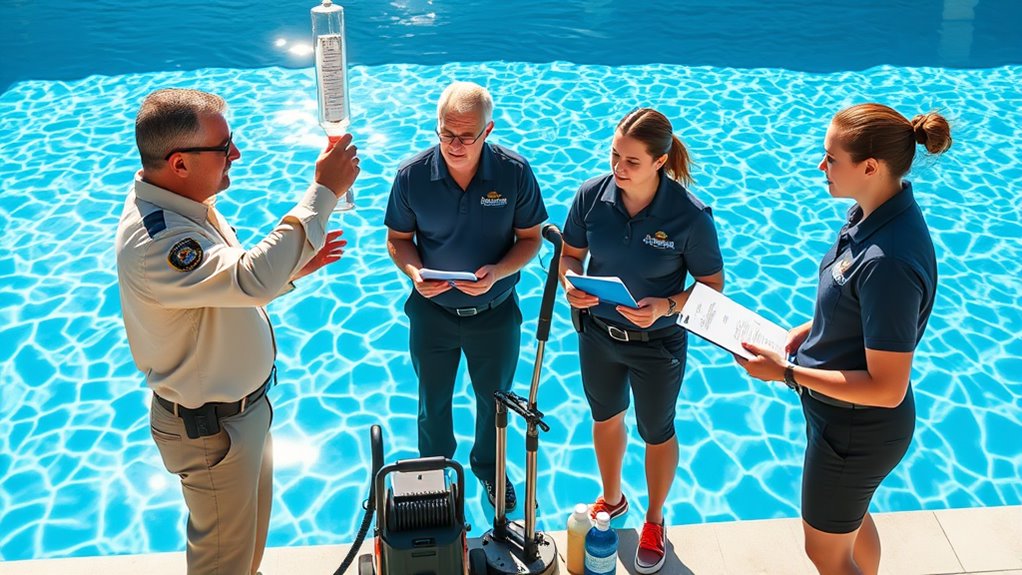
Building a successful pool maintenance business requires more than just effective marketing – you'll need skilled technicians who can deliver exceptional service. Develop effective recruitment strategies that target candidates with mechanical aptitude and customer service skills. Focus on technician retention by offering competitive pay, benefits, and clear career advancement paths.
Establish a thorough training program that covers:
- Pool chemistry fundamentals and water testing procedures
- Equipment maintenance, troubleshooting, and repair techniques
- Safety protocols and OSHA compliance requirements
- Customer communication and service excellence standards
Pair new hires with experienced technicians for hands-on mentoring. Document standard operating procedures and create training manuals for consistent service delivery. Regular performance reviews and ongoing education opportunities will help maintain high service standards and improve technician retention. Consider certification programs to improve your team's expertise and credibility.
Building a Client Management System
To effectively manage your growing pool service business, implementing a strong client management system is essential for tracking customer data, service histories, and maintenance schedules. Choose a client database management platform that integrates scheduling, billing, and customer communication features to streamline your operations.
Your customer relationship management system should include detailed property information, pool specifications, chemical treatment records, and equipment maintenance logs. Set up automated reminders for recurring services, warranty expirations, and follow-up communications. You'll need to track customer preferences, special instructions, and gate codes for each property.
Configure your system to generate service reports, maintenance recommendations, and invoices automatically. This systematic approach helps you deliver consistent service quality while reducing administrative overhead and improving customer satisfaction.
Seasonal Planning and Growth Strategies
Because pool service demands fluctuate considerably throughout the year, creating a strategic seasonal plan will help you optimize revenue and maintain steady growth. Analyze seasonal trends to identify peak periods and slower months, then adjust your service offerings accordingly.
During off-peak seasons, focus on these growth opportunities:
- Offer winterization services and pool closings in colder months
- Develop maintenance packages that include year-round equipment checks
- Create early-bird specials for spring pool openings
- Expand your service area to include indoor pools and spas
Track your business metrics monthly to spot patterns and adjust your strategy. Consider diversifying your services to include pool renovations, equipment upgrades, and water testing consultations. Partner with local pool stores and builders to create referral networks that'll help maintain steady client flow throughout the year.
Frequently Asked Questions
How Long Does It Typically Take to Clean a Residential Pool?
For standard residential pool maintenance, you'll typically spend 30-45 minutes cleaning a pool, but this can vary based on several factors. If you're dealing with heavy debris, algae, or a neglected pool, it might take up to 2 hours. Your routine pool cleaning duration will include skimming, brushing walls, vacuuming, checking chemical levels, and backwashing the filter. For larger pools or those requiring extra attention, plan for extra time.
What Insurance Coverage Limits Should I Have for Pool Maintenance Business?
You'll need extensive insurance coverage for your pool maintenance business. Start with at least $1 million in general liability coverage to protect against accidents, chemical spills, or property damage. Consider increasing this to $2 million if you service high-end properties. Don't forget property insurance to cover your equipment and service vehicles. It's also wise to add professional liability coverage of $500,000 to safeguard against claims related to your maintenance advice or services.
Can I Start a Pool Business Part-Time While Keeping Another Job?
Yes, you can definitely start a pool business part-time while maintaining your current job. Begin by scheduling clients during early mornings, evenings, or weekends when you're off work. You'll need to carefully manage your time and initially limit your client base to guarantee quality service. As your business growth increases and you build a steady customer base, you can shift to full-time operations. Many successful pool service owners started part-time before scaling up.
How Do You Handle Difficult or Demanding Pool Maintenance Customers?
When dealing with demanding pool customers, maintain professional customer communication at all times. Listen actively to their concerns and validate their feelings, even if you disagree. Document all interactions and service details to prevent misunderstandings. If conflicts arise, focus on conflict resolution by offering clear solutions and alternatives. Don't take criticism personally, and always respond promptly to their inquiries. If needed, establish firm but fair boundaries while keeping your service standards high.
What's the Average Profit Margin in the Pool Service Industry?
You can expect profit margins in pool servicing to range from 40-60% for basic maintenance and up to 80% for specialty services. Your profit calculation should factor in multiple revenue streams, including weekly cleaning ($60-100 per visit), repairs ($85-150 per hour), and chemical sales (50-70% markup). You'll enhance your margins by offering package deals, maintaining efficient routes, and upselling supplementary services like equipment upgrades and seasonal maintenance plans.

